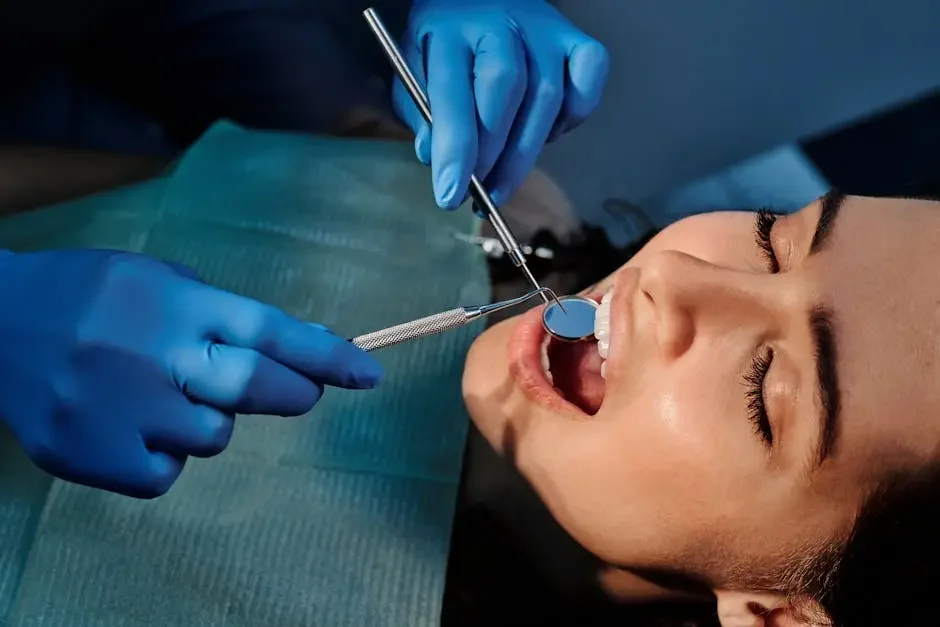10 Tips for a Smooth Endodontic Care Experience
Navigating endodontic care can feel daunting, but with the right tips, you can ensure a smoother journey. Whether it's for a root canal treatment or other procedures, understanding what to expect can alleviate anxiety and empower you to take charge of your dental health. Here are ten friendly and practical tips to help you have the best experience possible.
1. Understand the Procedure
Before your appointment, it’s helpful to familiarize yourself with the steps involved in endodontic procedures. Knowing what to expect can significantly reduce anxiety. Typically, the procedure starts with a review of your medical history, followed by a visual examination and necessary X-rays. This process ensures that your dentist understands your unique situation. Additionally, it can help you ask pertinent questions prior to the treatment.
Once seated in the dental chair, your endodontist will explain the procedure clearly. This allows you to feel more in control and informed about what’s happening. Remember, understanding the process can transform your fear into knowledge—an empowering experience! Each step taken is crucial for your oral health.
2. Choose the Right Specialist
Selecting a qualified endodontist can make all the difference in your experience. Not all dental professionals specialize in root canals or other endodontic treatments, so it’s vital to do your homework. Research their credentials, read reviews, and, if possible, gain referrals from friends or your general dentist.
A skilled endodontist will not only have the technical expertise but also the ability to make you feel comfortable and supported throughout the treatment. Trusting your specialist can significantly ease anxiety, as you will feel assured that you are in capable hands. Don’t hesitate to ask about their experiences and any success stories they might share; this can give you confidence going into your procedure.
3. Communicate Openly
Don’t hesitate to discuss any fears or medical conditions with your dentist. Open communication is vital for a tailored experience. If you have anxieties or past experiences that were less than favorable, sharing these details can help your endodontist address your needs more effectively.
Consider making a list of concerns or questions before your visit. This way, you’ll be ready to engage in a meaningful discussion without worrying about forgetting something important. Remember, it's your mouth, and your comfort matters immensely during the procedure.
4. Prepare for Your Visit
Preparation is key to reducing anxiety. As your appointment date approaches, ensure you are well-rested and have eaten a light meal before your appointment. Arriving at the office feeling good physically can help keep your energy up and your nerves in check.
You might also consider practicing relaxation techniques, such as deep breathing or visualization, to boost your calm state before the appointment. These small preparations can make a substantial difference in how you feel during your time in the dental chair.
5. Ask About Sedation Options
If anxiety is a concern for you, inquire about sedation methods available to you. Many dental practices offer various solutions to help patients feel more comfortable, whether it’s nitrous oxide, oral sedatives, or more advanced options.
Understanding these options allows you to make an informed choice about your care. Your comfort is essential, so don’t shy away from discussing what will work best for you during your treatment. A calm patient is much easier to treat, and it can make your endodontic experience not only bearable but even pleasant!
6. Follow Pre-Visit Instructions
Your dentist may provide specific pre-visit instructions, such as avoiding certain medications or dietary restrictions. Be sure to follow these closely for optimal results. Pre-care is just as important as post-care, and these guidelines can significantly impact your overall experience.
Taking these steps shows your commitment to the procedure’s success. Plus, it can enhance your trust in your dentist, knowing that they have your best interests at heart during the whole process.
7. Bring a Support Person
Having a friend or family member accompany you can provide comfort and support throughout the process. Their presence can help ease your nerves and provide an extra layer of security when facing the unknown of endodontic care.
Moreover, support persons can assist with remembering the information provided during your appointment. Sometimes, in a moment of anxiety, we may forget key details about our care plans, so having another set of ears can be extremely beneficial.
8. Stay Informed During the Procedure
Don’t be afraid to ask your endodontist questions during the procedure. Understanding each step can help ease your mind. Whether it’s the tools being used or the sensations you're feeling, knowing what’s going on can transform the experience into a more educational one.
Most dentists appreciate questions, as it signals that you’re engaged in the process. This engagement fosters a better relationship with your dental professional, making your visit more collaborative and less intimidating.
9. Emphasize Post-Care Instructions
Following your endodontic treatment, emphasize the aftercare instructions provided by your dentist carefully. These guidelines are crucial for ensuring a smooth recovery and preventing complications.
Ask for clarification on any points that are unclear. Knowing what to expect in the days following your procedure can empower you to monitor your healing effectively, ensuring that you're doing everything possible for optimal recovery.
10. Schedule Follow-Up Appointments
Don't skip those follow-up visits! They’re essential for monitoring your recovery and ensuring everything is on track. These appointments not only provide an opportunity for your endodontist to assess healing but also to address any concerns that may arise post-treatment.
A successful endodontic treatment doesn’t end when you walk out the door; it continues with diligent post-care and regular check-ins with your specialist. Staying on top of these appointments shows your commitment to maintaining your overall dental health.
